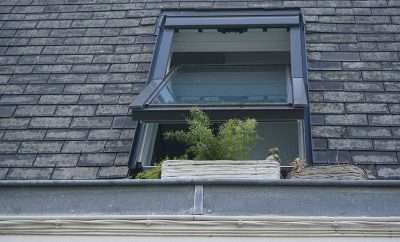
Top 5 Energy-Saving Tips Every Family Should Practice
Top 5 Energy-Saving Tips Every Family Should Practice
Neglecting to take account of your home’s energy consumption is detrimental to both your pocket and the environment. Not paying attention to this crucial environmental and financial aspect of home ownership means being outright wasteful. Becoming eco-conscious about your spending at home is really a win-win situation. You’ll be able to cut your expenses while simultaneously protecting the environment. And it all starts with these five essential energy-saving measures. Here are the top 5 energy-saving tips every family should practice.
Turn everything off when going out
We consume more energy than necessary as it is. So, why put a strain on both your pocket and the environment when this is not really necessary? Start by learning to turn everything off when leaving your home. Turn off the lights, screens (not on standby), water heaters, devices, everything. This is a simple yet effective habit that will help you make the first step towards a greener home.
When it comes to water heaters and your HVAC, invest in systems that are programmable and can be operated remotely using the Internet in order to minimise unnecessary spending. This investment will start paying off sooner than you might think.
Install energy-efficient lighting
Typical incandescent bulbs are already obsolete as LEDs and CFLs are stepping into their place. If you haven’t switched to these energy-saving alternatives, make sure you do so as soon as possible. Both LEDs and CFLs spend much less energy than the regular incandescent lights and actually provide much better lighting for all purposes. The former is somewhat more expensive than the latter, but they will doubtlessly pay off in the long run.
Rethink your energy providers
Not all energy providers are made equal. You might not be aware of it, but some vary greatly when put against your specific needs. Look around online to compare electricity providers and, after some dedicated and diligent research, pick a provider that suits your needs perfectly. This way, you may find a more affordable offer than the one you currently have. In addition, make sure to do this regularly in order to assess your energy consumption and stay up to date with different offers.
Maintain indoor temperature
Creating a pleasant, warm environment within your home is one of the essential aspects of indoor comfort. However, more often than not, this has a negative impact on the environment. One of the major energy spenders in a typical household is your HVAC system, especially when there are numerous air leaks and poor insulation.
A simple measure that you can implement is closing your doors and windows while this piece of equipment is working. Furthermore, make sure that your curtains and blinds remain closed during the scorching summer months to reduce the pressure on your air conditioning.
For the sake of your comfort, your pocket and our environment, it’s advisable that you maintain a stable indoor temperature at home. You should set your thermostat at 26 degrees or above during the summer months and to 20 or below during winter – going over these limits can add as much as ten percent to your heating bill. You can also install a smart, programmable thermostat which is far more energy-efficient than the regular ones.
Fill in the gaps
If your home has poor insulation, most of your previous efforts will be in vain. If there is even the tiniest sign of a draft within your home, it means that there are hidden air leaks that lead to energy waste. This is why insulating your entire home, including the roof, floors, walls, doors and windows, is so important. If you don’t take care of this, you’ll find yourself haemorrhaging money and unnecessarily wasting energy.
Similarly, you should check whether your refrigerator and freezer(s) run efficiently. These household appliances are typically always on. Make sure that the door seal is tight and gap-free – the escaping cold air doesn’t only mean that your fridge is less than energy efficient, but also that this cold air is leaking into your kitchen, which will then require more energy to be heated up.
Being energy-efficient is actually very simple. All it takes is dedication, effort and time – an affordable price for something this important. From energy-saving habits to some simple changes, these five measures will help you preserve both your energy and the environment.

















